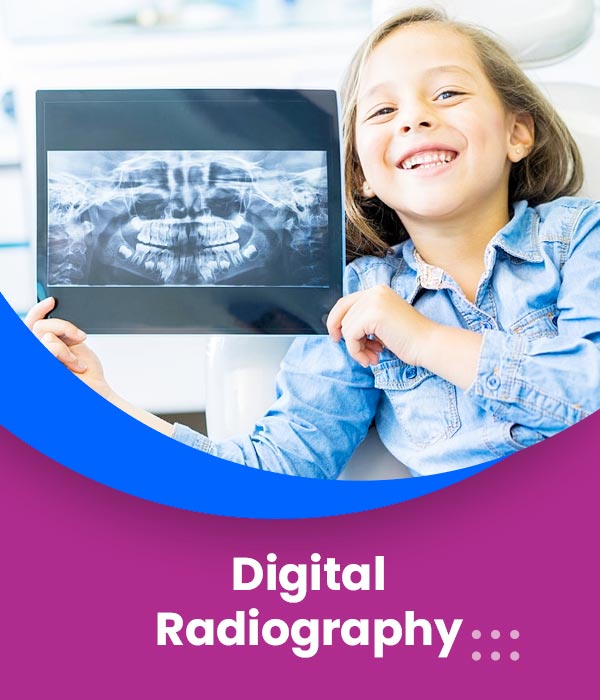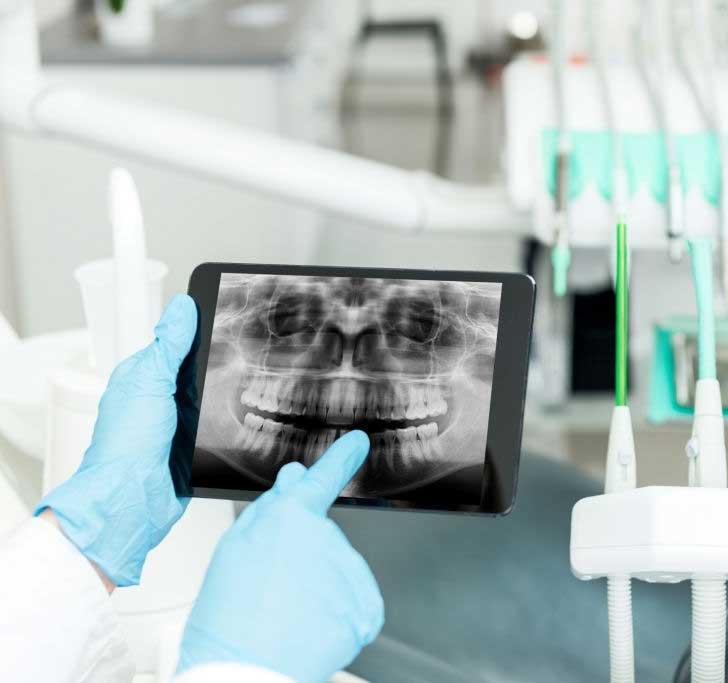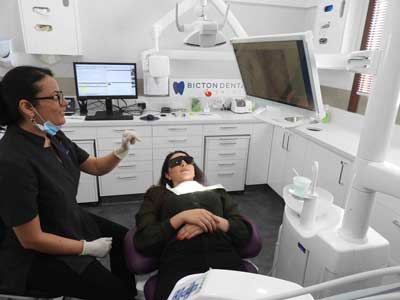


Digital Radiography
Dental professionals nowadays use virtual dental radiographs (digital X-rays) to higher hit upon, diagnose, treat, and screen oral conditions and diseases. Digital radiography is a kind of X-ray imaging that makes use of virtual X-ray sensors to replace traditional photographic X-ray movies, generating more perfect computer images of teeth, gums, and other oral structures and systems.
Digital dental photographs are obtained through three methods, the direct technique, oblique technique and semi-indirect technique. The direct approach uses a digital sensor located in the mouth to report pictures. The oblique method makes use of an X-ray film scanner to view traditional dental X-rays as virtual photos. The semi-indirect digital approach combines a sensor and scanner to convert dental X-rays into the virtual film.
Digital dental radiographs may be taken inside (intraoral) or outdoor (extraoral) the mouth. Intraoral X-rays, the most normally taken dental X-ray, provide exquisite detail and are used to detect cavities, test the popularity of growing tooth and screen tooth and bone health. Extraoral X-rays do not offer the element of intraoral X-rays and aren’t used to pick out individual enamel troubles. However, they’re used to discover impacted teeth, reveal jaw increase and development, and perceive capability problems among teeth, jaws and joints or other facial bones.
Types of intraoral X-rays encompass Bitewing X-rays, Periapical (restrained) X-rays, Panoramic (Panorex) X-rays, Multi-slice computed tomography (MCT), Cephalometric projections, Sialography and Cone-beam computerized tomography (CBCT).

Benefits of virtual dental radiographs compared to traditional dental X-rays encompass the subsequent.
- Digital radiographs screen small hidden regions of decay among teeth or beneath present restorations (fillings), bone infections, gum (periodontal) disease, abscesses or cysts, developmental abnormalities and tumors that can’t be detected with handiest a visual dental examination.
- Digital radiographs can be considered right away on any laptop screen, manipulated to beautify contrast and detail, and transmitted electronically to experts without excellent loss.
- Early detection and remedy of dental problems can keep time, cash and discomfort.’
- The Digital micro-garage era lets in extra statistics garage potential on small, space-saving drives.
- Dental digital radiographs take away chemical processing and disposal of hazardous wastes and lead foil, thereby imparting a “greener” and eco-friendly alternative.
- Digital radiographs may be transferred effortlessly to different dentists with well-suited laptop technology, or picture revealed for dentists without like-minded era.
- Digital sensors and PSP (photostimulable phosphor) plates are more sensitive to X-radiation and require 50 to 80 percentages less radiation than film. This era adheres to the ALARA (As Low as Reasonably Achievable) principle, which promotes radiation safety.
- Digital radiograph features, which include contrasting, colorizing, 3-D, sharpness, turn, zoom, and so forth, help in detection and interpretation, which in flip help in diagnosis and patient schooling. Digital images of hassle areas can be transferred and enhanced on a computer display screen after the affected person’s chair.
- Digital dental images can be stored effortlessly in electronic patient facts and, sent speedy electronically to coverage organizations, referring dentists or specialists, frequently eliminating or reducing treatment disruption and leading to faster dental coverage reimbursements.
We believe in quality and deliver advanced digital radiography at Bicton Dental Clinic.
Frequently Asked Questions
How do you make sure all your equipment is properly clean and safe?
We adhere to all the latest government regulations advice and guidelines regarding equipment, cross-infection and decontamination. All our equipment is properly serviced and maintained and our staff receives regular training to make sure we are completely up to speed. We make sure your safety is taken very seriously!
Why do I need to come to the dentist if I am not in any pain?
The problem is it doesn’t necessarily follow that not having any pain, means you don’t have any dental problems. Tooth decay and gum disease need to be well advanced before they cause pain. By the time they cause pain treatment becomes more difficult more expensive and time-consuming and the outcomes are less predictable. At our checkups, we will check your teeth and gums very carefully and advise you of any potential problems. We also check for mouth cancer. If your teeth and gums are completely healthy, we will give you advice on how to keep them that way. We may also recommend you increase the interval between check-ups to a year if you are spectacularly good!
I think I've got bad breath. What can I do to get rid of it?
Bad breath is most commonly caused by the smelly gases produced by the bacteria coating your teeth and gums. Food debris trapped in between the teeth can also start to decompose and cause a very unpleasant odor. So effective and regular tooth brushing and cleaning in between your teeth with dental tape or interdentally brushes and cleaning your tongue is crucial to keep your breath fresh.
Strong foods like garlic coffee and onions and smoking of course add to the problem, as can having a dry mouth caused by certain medical conditions and some prescribed drugs and mouth breathing. Artificial saliva products may help.
Infections in the throat nose lungs or sinuses and liver or kidney problems may also cause bad breath. If we can’t find a dental cause for your problem we may refer you to your doctor.
My teeth are really sensitive. What can I do to treat it?
Sensitive teeth are usually triggered with cold food (ice cream) or drinks, or touch (toothbrush or fingernail) or sweet foods (chocolate). The pain is severe but only lasts for a few seconds. If you get pain that lasts longer than this and is triggered with hot things more than cold you have a toothache, not sensitivity!
Sensitivity can be caused by exposing the more sensitive dentine on your teeth either by brushing too hard or drinking /eating too many acidic foods, fizzy drinks, white wine, fruit juice. The solution is to limit or expose your teeth to acid attack, clean with an electric toothbrush and use toothpaste for sensitive teeth. Use the toothpaste as an ointment… rub it into the sensitive areas and leave it there.
If you find no improvement come and see us!
What do I do if I have a dental emergency and need urgent help?
Please call us immediately on (08 9339 8008) as soon as possible. We will do everything we can to help you. The earlier in the day that you ring, the more likely you are to be seen that same day and at a time that suits you best. If the practice is closed and you cannot wait until opening time, please call us and listen to the answer phone message which will give you instructions on accessing our out of hours emergency service.
